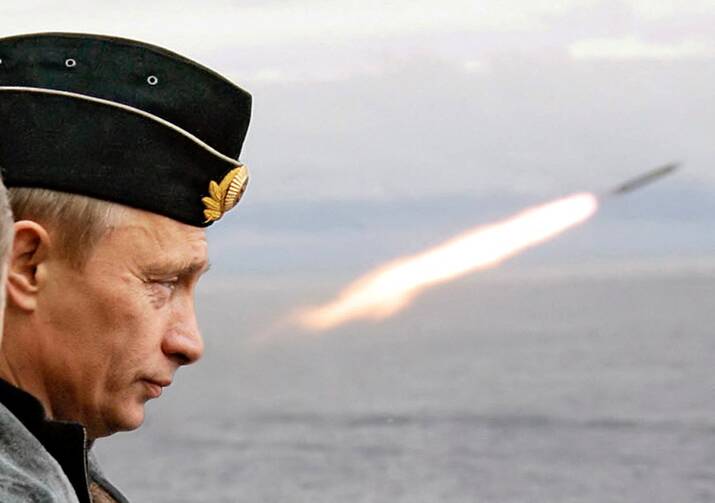- Feb 5, 2002
- 166,664
- 56,279
- Country
- United States
- Faith
- Catholic
- Marital Status
- Married
- Politics
- US-Others
As long as there has been a war in Ukraine, people have called for peace. Some propose a peace simply defined as a halt to fighting. They cite the suffering: More than 300,000 Ukrainian and Russian soldiers have been killed or wounded, thousands of civilians have been killed, and more than nine million Ukrainians have been displaced and have become refugees. Sirens, shortages and missiles continuously frighten Ukrainian civilians; trauma and grief pervade. And no end is in sight.
Running through Pope Francis’ more than 100 statements about the war is the leitmotif that war itself is the problem—absurd, a tragedy, a defeat for humanity. More coolly, political realists say that Ukraine does not stand a reasonable chance of rolling back the Russian invasion and that trying to do so risks nuclear war. And in the United States, some politicians call for scaling back a commitment to Ukraine that is expensive and, they say, not in our national interest. All of these voices put forth a minimal peace, prioritizing an end to fighting. The implication is that Ukraine should be coaxed or forced into negotiating.
An end to the war is not true peace, though, if it means an end to Ukraine. Sts. Augustine and Thomas Aquinas held that the purpose of a just war is a just peace. Pope Paul VI echoed this point on the Day of Peace in 1972 with a statement titled “If You Want Peace, Work for Justice.”
Continued below.

 www.americamagazine.org
www.americamagazine.org
Running through Pope Francis’ more than 100 statements about the war is the leitmotif that war itself is the problem—absurd, a tragedy, a defeat for humanity. More coolly, political realists say that Ukraine does not stand a reasonable chance of rolling back the Russian invasion and that trying to do so risks nuclear war. And in the United States, some politicians call for scaling back a commitment to Ukraine that is expensive and, they say, not in our national interest. All of these voices put forth a minimal peace, prioritizing an end to fighting. The implication is that Ukraine should be coaxed or forced into negotiating.
An end to the war is not true peace, though, if it means an end to Ukraine. Sts. Augustine and Thomas Aquinas held that the purpose of a just war is a just peace. Pope Paul VI echoed this point on the Day of Peace in 1972 with a statement titled “If You Want Peace, Work for Justice.”
Continued below.
Why a ‘just peace’ in Ukraine will require more than defeating Putin
It is not too early to imagine a ‘just peace’ in Ukraine. But ending the armed conflict is not enough; Russia may need to undertake reparative measures including formal apologies and financial reparations.
 www.americamagazine.org
www.americamagazine.org
